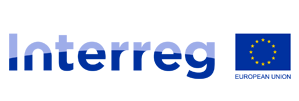
Interreg Germany – Denmark
- www.interreg-de-dk.eu
-
- Denmark nuts 3 level
- Fyn
- Sydjylland
- Vest- og Sydsjælland
- Østsjælland
- More details about Denmark
- Germany nuts 3 level
- Flensburg, Kreisfreie Stadt
- Kiel, Kreisfreie Stadt
- Lübeck, Kreisfreie Stadt
- Neumünster, Kreisfreie Stadt
- Nordfriesland
- Ostholstein
- Plön
- Rendsburg-Eckernförde
- Schleswig-Flensburg
- More details about Germany
- Denmark nuts 3 level
Description
Interreg Germany-Danmark – this is how it works
For the period 2021-2027, Interreg Deutschland-Danmark will receive a grant of around EUR 94 million from the European Regional Development Fund (ERDF). German-Danish cooperation projects are funded in the different priorities of the programme.
Two programme bodies have been set up for the administration and implementation of the Interreg programme, which see themselves as one unit and work closely together.
The administrative authority in Kiel is primarily responsible for the proper implementation of the programme. The Interreg Secretariat is located on the German-Danish border in Kruså (Denmark) and is responsible for project generation, advice and support as well as public relations. Both administrative bodies are responsible for both the German and the Danish actors in their respective areas of responsibility. The employees are bilingual, so the programme administration also practices cross-border cooperation.
Programme area & programme partners
The German-Danish cooperation between the southern parts of Denmark and Schleswig-Holstein has a long tradition and at the same time has different characteristics.
Today’s programme area and thus the funding region for Interreg Germany-Danmark includes the Syddanmark and Sjælland regions on the Danish side and the districts of North Frisia, Ostholstein, Plön, Rendsburg-Eckernförde and Schleswig-Flensburg on the German side, as well as the independent cities of Flensburg, Kiel and Lübeck and Neumunster.
The programme partners jointly focus on structural, thematic and strategic priorities for the further development of the German-Danish region.
Contacts
Interreg-Sekretariat in Kruså
- +45 7663 8230
- Flensborgvej 26a
DK-6340 Kruså Lewe Kuhn, Head
- + 45 7663 1907+ 45 2920 1907
Christina Ehlers, Communications Officer
- +45 7663 8236+45 2461 1095
Charlotte H. Andersen, Project Officer
- +45 7663 8237+45 2461 1421
Dr. Charlotte Steffen, Project Consultant
- +45 7663 8239+45 2054 0868
Niels Christian Warming, Project Consultant
- + 45 7663 8231
Jane Guldbrand-Hansen, Project Consultant
- +45 7663 8234+45 2920 1395
Annika Bock, Project Consultant
- +45 7663 8230+45 2461 1118
Patrick Bertulies Schmidt, Student Assistant
- +45 7663 8242
Nane Sievertsen, Student Assistant
- +45 7663 8235
Investment Bank Schleswig-Holstein - Susanne Koch (Head)
- +49 431 9905 3531
- Zur Helling 5-6, 24143 Kiel


